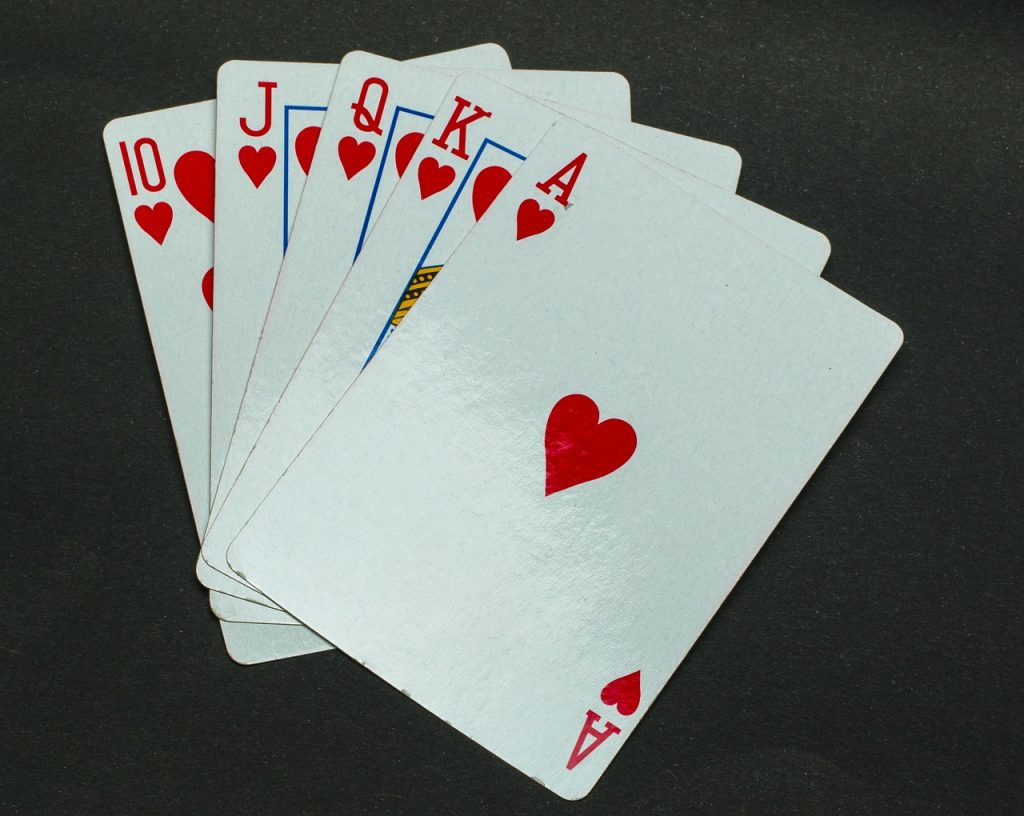7 Common Mistakes Poker Players Make and How to Avoid Them

Poker is a game of skill, strategy, and psychological insight, where even the smallest mistakes can have significant consequences. In the pursuit of success at the poker table, players often fall victim to common pitfalls that hinder their progress and erode their bankrolls. Understanding and avoiding these mistakes is crucial for any aspiring player looking to improve their game and achieve long-term success. In this article, we will delve into seven of the most prevalent errors that poker players make, exploring how they can be detrimental to one’s performance and offering valuable insights on how to steer clear of these pitfalls.
### Lack of Bankroll Management
Ah, the siren call of reckless abandon at the poker table. Without proper bankroll management, you might as well be playing poker with Monopoly money. Learn why keeping a close eye on your bankroll is key to avoiding a never-ending cycle of busting out.
#### Importance of Proper Bankroll Management
It’s not just about keeping your poker dreams afloat – it’s about safeguarding your sanity. Discover why learning to manage your bankroll like a tight-fisted miser can actually lead to more fun and success at the tables.
### Ignoring Position and Bet Sizing
Blasting chips around like a loose cannon? Ignoring your position and bet sizing could be the culprit. Time to upgrade your poker IQ and start playing smart.
#### Understanding Positional Strategy
Hint: it’s not just about finding the comfiest chair at the table. Uncover the secrets of mastering positional strategy and gain a tactical edge over your opponents.
#### Significance of Correct Bet Sizing
Size does matter, especially in the poker world. Learn why mastering the art of bet sizing can be the difference between winning big and going home empty-handed.
### Overvaluing Hands and Chasing Draws
Got a pair of twos and a dream? Hold your horses before you start chasing that flush draw. Discover why overvaluing hands and chasing unlikely draws can lead you down a treacherous path to Poker Purgatory.
#### Recognizing Hand Strengths and Pot Odds
It’s time to separate the contenders from the pretenders. Get a crash course in recognizing true hand strength and calculating pot odds like a seasoned pro.
#### Avoiding Costly Draws and Marginal Hands
Who needs a high-maintenance hand anyway? Learn how to sniff out those costly draws and marginal hands and avoid falling prey to their seductive trap.
### Neglecting to Adjust to Opponents
Poker is like a game of human chess – neglecting to adjust to your opponents is like playing blindfolded. It’s time to sharpen your people-reading skills and start adapting like a chameleon at the tables.
#### Reading and Exploiting Player Tendencies
Forget crystal balls – the real magic happens when you start reading your opponents like an open book. Discover the art of reading player tendencies and turning their weaknesses into your biggest strengths.
#### Adapting Strategies Based on Opponent Behavior
In poker, it’s not just about the cards you’re dealt – it’s about how you play them. Learn why adapting your strategies based on your opponents’ behavior can be your ticket to poker domination.# Emotional Decision-Making
**Managing Tilt and Emotional Swings**
Poker can be an emotional rollercoaster, with wins and losses stirring up strong feelings. Tilt, the state of playing poorly due to emotional distress, is a poker player’s worst enemy. Take a breather, regroup, and avoid making impulsive decisions fueled by emotions. Your bankroll will thank you.
**Maintaining a Rational Approach to Poker**
Emotions can cloud your judgment at the poker table. Stay focused on making rational decisions based on logic and strategy rather than being swayed by temporary feelings. Keep a cool head, and your poker game will thank you.
# Poor Table Selection
**Selecting the Right Game and Limits**
Not all poker tables are created equal. Choose games and limits that match your skill level and bankroll. Jumping into a high-stakes game when you’re not ready can lead to disaster. Pick your battles wisely and increase your chances of success.
**Identifying Profitable Tables and Avoiding Tough Competition**
Scouting for profitable tables is a skill in itself. Look for games with weaker opponents and avoid tables filled with sharks. Your goal is to maximize your profits while minimizing your risks. Choose your opponents wisely, and watch your bankroll grow.
# Failing to Review and Learn from Mistakes
**Importance of Post-Session Analysis**
Learning from your mistakes is crucial for growth as a poker player. After each session, take the time to analyze your play. Identify areas where you could have made better decisions and learn from them. The more you review, the more you’ll improve.
**Implementing Changes and Continuously Improving**
It’s not enough to recognize your mistakes; you must also make changes to prevent them in the future. Implement new strategies, adjust your gameplay, and continuously strive to improve. Poker is a game of skill that rewards those willing to learn and adapt.By recognizing and rectifying these common mistakes, poker players can elevate their gameplay and increase their chances of success at the tables. Developing a strong foundation of strategic decision-making, emotional control, and continuous self-improvement is essential for navigating the complexities of poker effectively. By learning from past errors and implementing the necessary adjustments, players can sharpen their skills and approach each game with confidence and competence. Avoiding these pitfalls is not only a path to improved results but also a journey towards becoming a more proficient and formidable poker player.
FAQ
1. How important is bankroll management in poker?
2. Why is it crucial to adjust to opponents in poker?
3. Can emotional decision-making impact a player’s performance at the poker table?
4. Why is reviewing and learning from mistakes essential for poker players?

Looking to promote your sports betting and casino services effectively? AdHang offers Gambling SEO and specialized marketing services tailored to reach and engage your target audience. With a focus on strategic messaging and wide-reaching digital marketing tactics, AdHang can help elevate your brand and drive results in the competitive online gambling industry. Click here to discover how AdHang’s expertise can take your sports betting and casino marketing to the next level.









